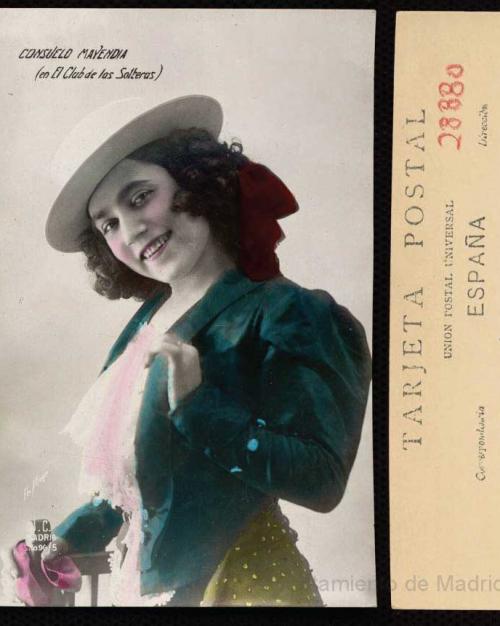You are a scholar doing research in an archive. Another person in the archive smiles at you. Do you a) smile back, or b) look away because you’re tired of people expecting you to smile?
“There are micro-moments in the archive where your privilege and positionality take you along a different research route,” said Julia Chang, assistant professor of Spanish studies in the Romance Studies Department, College of Arts and Sciences, describing not just experiences she and other researchers have had in archives, but also a moment programmed into an online, text-based game she developed this year with an undergraduate researcher.
The game, “Found in the Archive” will launch during an online event June 2 at 2 p.m. It is a web-based digital humanities project comprising a digital archive and a text-based game on the platform Twine that positions players in the role of the researcher who sets out to research a history of love, but ends up veering from this project after uncovering a history of ableism.
Chang received a Humanities Research Grant from the Society for the Humanities to complete the project with computer science student Janie Walter ’21, an experienced game designer.
The Twine game is interactive fiction, Walter said. Players advance through a narrative, clicking on linked text to choose a path through various challenges.
“In many ways, this is a game meant to frustrate the player because archival work is frustrating,” said Walter, who has taken Feminist, Gender and Sexuality Studies courses with Chang. “It’s difficult. It is often painful. And often it has rules that are not spoken to you but that you have to work your way around, especially when you are marginalized doing this research yourself.”
Archival research – searching for scholarly clues in a vast collection – is difficult by its nature, Chang said. On top of that, scholars are currently discussing the archive as a place that is not neutral, but rather designed for a certain kind of person.
“I found some interesting analogies in game studies,” Chang said. “There are a lot of conversations about challenging this idea of a white, cis, hetero male player as the normative player of games. And there’s a similar thing going on with the white, male, cis researcher in the archive.”
Chang said that as a young Asian woman, she “inhabits a conspicuous body” in a European military archive as she researches gender and disability in Spain from the 1890s through the 1970s. It’s the topic of her second book project, and, as a historically marginalized story, one that is particularly hidden in an archive, she said.
“You can’t just go into a historical archive and look under the word ‘disability,’ Chang said. “It’s a contemporary concept.”
Chang started this game as a pedagogical tool, to help students understand that they have to be creative while doing archival research, especially trying to uncover marginalized stories.
Walter said educational games are often focused on being useful as training tools: “We put more in this game than that,” she said. “There is something effective in teaching this feeling of frustration and hitting a wall in research that I think is valuable.”
“Found in the Archive” will supplement Chang’s second book project, “Able-Empire: Gender and Utility in the Age of Spanish Fascism.” It explores the medical and social connotations of “uselessness,” an official term Chang found in an archive document from 1824 used to designate those bodies unfit for military conscription or those disabled during military service.
“Lots of people are thinking about the power relations built into the archive,” Chang said. “Our game is participating in a conversation about what the archive is, what does it house, and who is allowed to get access to that.”
Read the story in the Cornell Chronicle.




